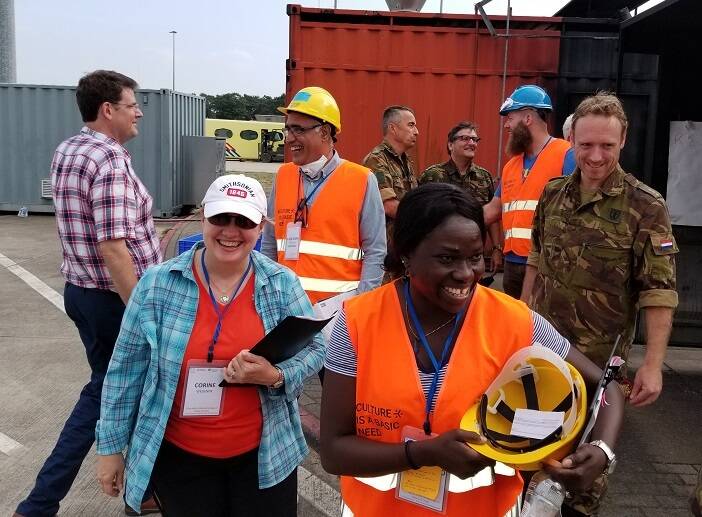Why cultural heritage shouldn’t wait
UNESCO ‘Looking Beyond Disaster’ Ambassador Dr Dolapo Fakuade attended the First Aid for Cultural Heritage in Times of Crisis (FAC) course, held between 5-26 August 2018 in the Netherlands. She shares her experiences and observations.
Dr Fakuade Reports
Heritage contributes to our sense of place, national identity and community, a sense that transcends geographical boundaries and generations. This makes heritage, archaeological, cultural, museums, historic sites etc. of great value to communities in New Zealand and world-wide. It connects us to the past, reaffirms hope for the future, helping us to thrive in the present.
Iconic heritage are popular tourist attractions and landmarks in different regions of New Zealand while it contributes to economic growth and sustainable development. Past events have shown that cultural heritage plays a role in strengthening the resilience of affected communities. Therefore, heritage should not wait in our disaster response at all levels, starting with our communities. This understanding motivated my participation in the recent FAC.
FAC aims to increase awareness, preparedness and improve response coordination for the protection of movable and immovable cultural heritage in an emergency. The course entails brainstorming sessions, formal occasions, practical activities such as workshops, site visit and a simulation exercise that involved the Dutch army, firefighters, different heritage stakeholders and local and international media. Main course contents include:
- principles for safeguarding heritage in conflicts and disasters
- activities that underpin first aid for cultural heritage framework
- communication strategies with stakeholders and actors
- negotiation for ethical first aid in cultural heritage.
The course contents enabled participants to understand key components of an institutional risk management plan as well as people-centred first aid to cultural heritage. Attended by 23 participants from 22 countries from all over the world, the 2018 FAC training course was organised in conjunction with the Prince Claus Fund ICCROM, the Smithsonian Cultural Rescue Initiative, and the Netherlands Commission for UNESCO, and other local partners in the Province of North Brabant, Brabant Heritage, and the municipalities of Breda and ’s-Hertogenbosch.
As UNESCO ‘Looking Beyond Disaster’ ambassador, my goal is to work with heritage and disaster management stakeholders and actors in New Zealand and around the world to advance FAC as a proactive response process to protect our heritage.

